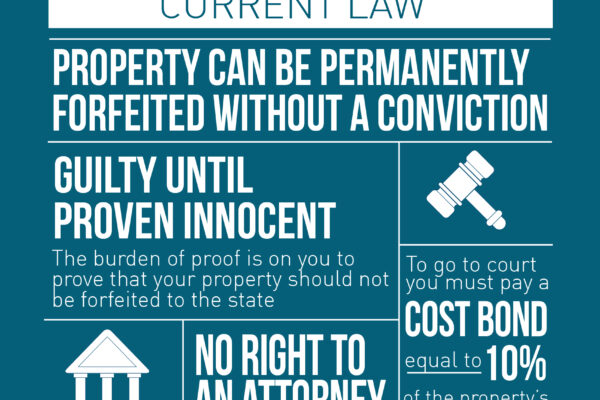HB 303: Civil Asset Forfeiture Reform
- Status: Signed by governor
- Position: Support
- Bill Number: House Bill 303
- Latest Update: July 11, 2017

Related Content
Sep 19, 2017

ACLU of Illinois and Legislative Sponsors Celebrate the Signing of Civil Asset Forfeiture Reform (HB 303)
The ACLU of Illinois and legislative sponsors celebrated the signing of House Bill 303 today. The new law passed with bipartisan support in the Illinois legislature and reforms various asset forfeiture statutes to increase fairness to property owners, increase transparency in the forfeiture process,
Issue Areas:
Criminal Legal Systems and Policing
Stay Informed
Sign up to be the first to hear about how to take action.
By completing this form, I agree to receive occasional emails per the terms of the ACLU’s privacy statement.
By completing this form, I agree to receive occasional emails per the terms of the ACLU’s privacy statement.


